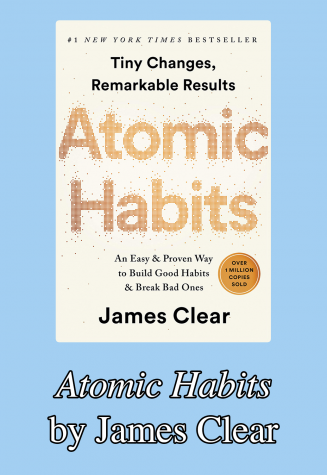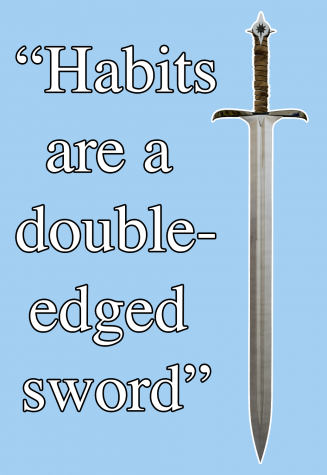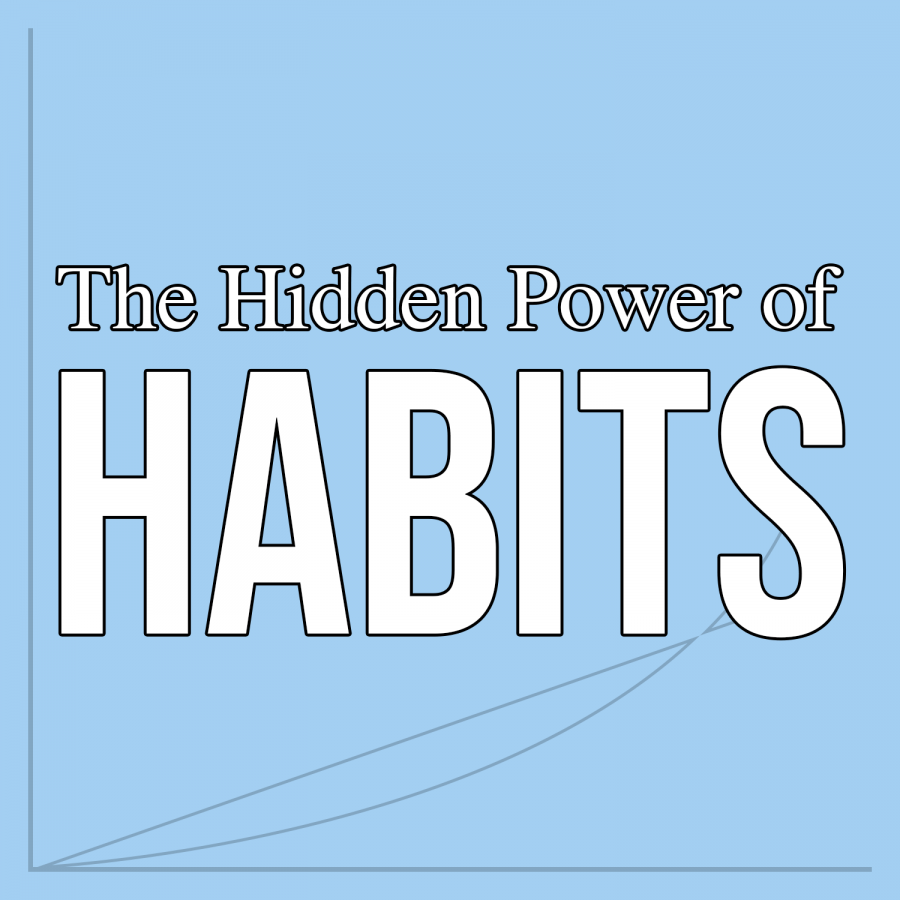Feature – The Hidden Power of Habits
Habits can be harnessed to change your life for the better
August 15, 2021
As a member of society, there is no way to escape the moral suggestion that you should make good habits and avoid bad ones. You are surely exposed to this way of thinking much more than you might realize, and it has given all of us a subconscious knowledge about the importance of habits. This is by no means a bad thing, either, as habits are most certainly one of the most powerful things in one’s life, allowing you to create chain reactions of improvements and positive changes. They hold a hidden power that, once tapped into, will allow you to become the best version of yourself that you are always striving to reach. Of course, this is just an exaggerated way of telling you that making good habits is something you should do to live a happier life, but the potential of changing your habits and your life with them is seriously undervalued. In this article, with the help of one particular book and someone that has already discovered the value of habits, I will prove to you how they are so important.

First up is what I have learned from the book Atomic Habits by James Clear. It’s a #1 New York Times Bestseller with over one million copies sold, and for good reason. From start to finish, it explains the power that you can gain by taking control of your habits and proves to the reader why it works that way. For example, it’s human nature to give big moments significance in our mind and see smaller occurrences as less important, but this is not necessarily the correct way to think. These small actions, while often overlooked, are what will build up into huge changes down the line, and therefore they cannot be ignored. Making a mere 1% improvement in anything is tiny, probably not even noticeable, but it is still a step down the path of improvement that you need to take. Clear gives an explanation of the math behind this example, stating that “If you can get 1 percent better each day for one year, you’ll end up thirty-seven times better by the time you’re done.” Although our actions don’t give perfect single percent increases in skill, the concept is certainly still there, and this is exactly why you must continue those small improvements, even if you don’t see an instantaneous improvement.

It isn’t all smooth sailing, though, as Clear mentions that habits can work both for you and against you. Smart, productive choices will compound and slowly make it easier for you to make that sort of choice again, but likewise if you keep choosing the easy way out there will eventually be no other option in your mind. Habits are a double-edged sword that you must harness for the benefits instead of ignoring them and allowing the negative effects to take over. Finally, Clear analyzes the difference between how humans expect their progress to go and how it actually goes. When we choose to try and improve ourselves, no matter what it is, we expect our progress to be that of a line on a graph, gaining a perfectly equal amount of improvement every time. On the contrary, it has been found that we start off improving much less than we expect we will. This period of a few months to even a few years holds disappointment that our progress isn’t arriving as quickly as we want, causing the majority of people to give up. Those that stick with it, however, will find that a time will come when progress skyrockets. All of the work you have “stored” is put to use and you finally break through that rut of slow improvement. Clear says that “the seed of every habit is a single, tiny decision,” and unfortunately most people can make that first decision but fail to keep with it as it grows into a full-fledged powerful habit. This all sounds very complicated and overwhelming, but the message is simple: choosing to build good habits is a tough process, one that will certainly discourage you, but it is all worth it in the end and the payoff is spectacular.
In addition to reading a book about the power of habits, real-life evidence and advice is needed to truly show the power of habits. For this, who better to turn to than Mike McNeill, the Programming/Instruction Manager at Notre Dame’s Compton Family Ice Area. He must make extremely important decisions on a daily basis that affect him and all of his coworkers, and on top of that he must oversee nearly every other employee in the building. He is only able to handle this stressful job because of the habits he has worked hard to build, providing the strong foundation that he needs to get the work done. He explained that one of the greatest habits he has formed is the ability to prioritize, knowing what is important now and having the confidence in your ability to leave other tasks for the future. Stress is minimized when you can organize your obstacles and tackle them in the best way possible, knowing you can handle it.
Good habits form your day, giving it the structure you need to accomplish your goals and beyond.
— Mike McNeill
Additionally, he shared how much he values the building of strong, positive relationships with coworkers and anyone else that he interacts with. Taking the time to really care about someone and get to know them helps everybody be more productive and happy, which certainly makes it easier for you to focus on your goals in life. Furthermore, Mike makes certain that he always shows appreciation to the people that help him and the people he depends on, which will make them work even harder in the future because they know their efforts are valued. While it’s easy to forget, the truth is that we rely on others to complete what we need to just as much as they rely on us, and focusing on these relationships will help their habits skyrocket along with your own. Thanks to these habits, Mike explained that his work day has become immeasurably more pleasant and productive. However, these improvements can apply to more than just work, and even to life in general. He explained that your day-to-day life is built on habits, and that an improvement in one field is still an improvement nonetheless, allowing us to continue to better ourselves. His final quote: “Good habits form your day, giving it the structure you need to accomplish your goals and beyond.” This couldn’t be more true, and as someone who has already harnessed the hidden power of habits, he proves the positive impact that habits can have on our lives. Work hard, trust the process, and see for yourself what blooms when you choose to stick with that seed of a good habit.







